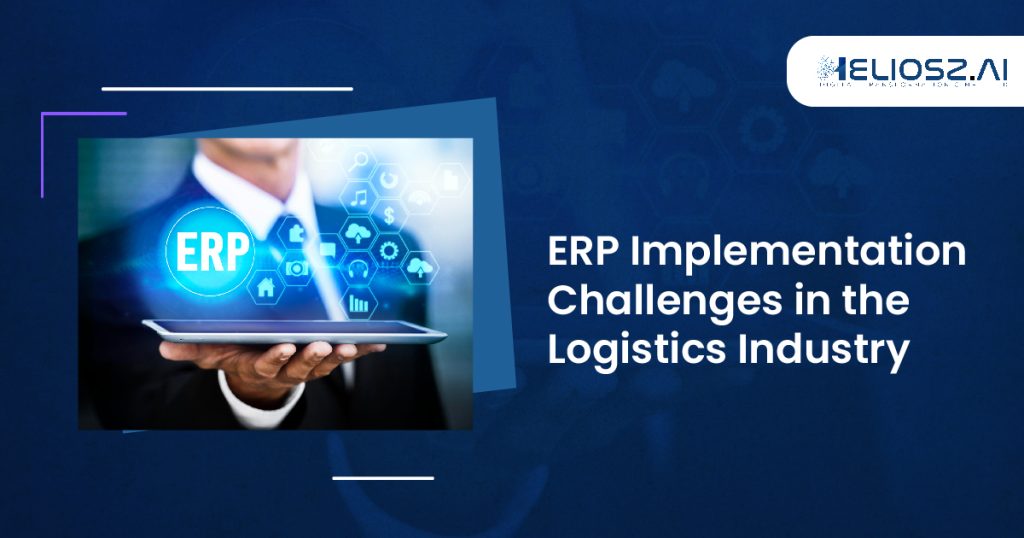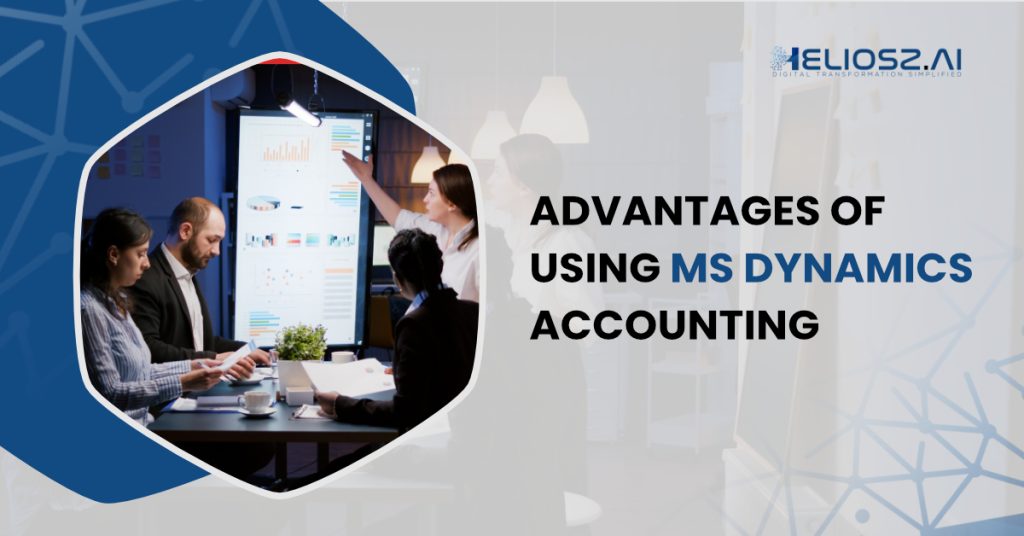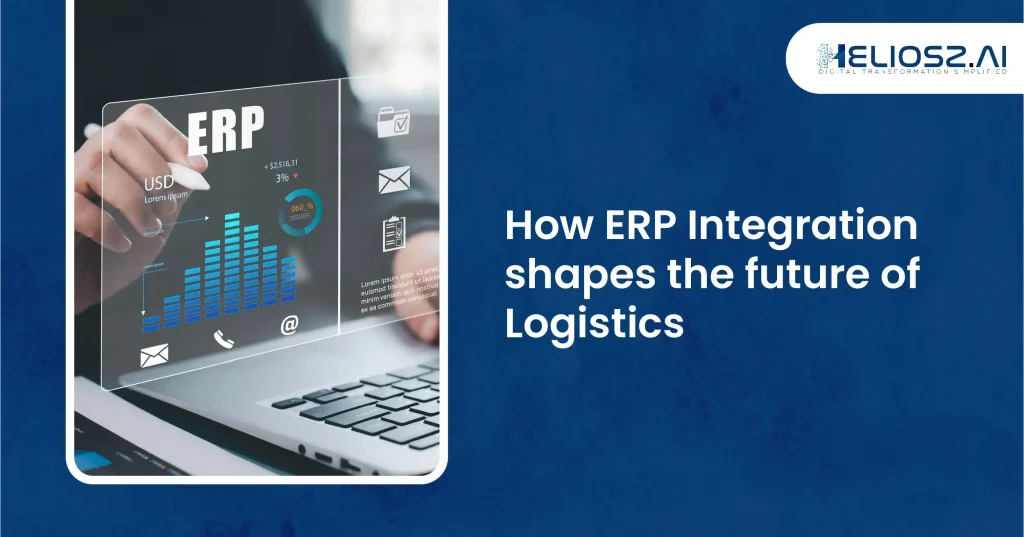
The logistics sector, being the backbone of the world business world, is a mandatory industry that ensures that goods move from manufacturers to consumers smoothly. To optimize these operations, the ERP (Enterprise Resource Planning) systems play a central role in the integration of all those services. However, ERP Implementation challenges often arise, which can impede the full benefits of such systems.
ERP systems are software solutions that automate and simplify the information flow, thereby improving productivity among all the departments of an organization.
The ERP Implementation challenges in the transportation and storage services, which are believed to have the power of change, also have its problems that can harm the company.
Identifying and addressing the key ERP implementation challenges is a smart strategy to ignore impeding business success.
- Understanding ERP Systems
- What are the ERP Implementation Challenges?
- 1. High Costs and Budget Constraints
- 2. Complexity of Integration with Existing Systems
- 3. Data Security and Privacy Concerns
- 4. Lack of Technical Expertise and Skill Gaps
- Strategies to Overcome ERP Implementation Challenges
- 1. Effective Project Management
- 2. Employee Training and Change Management
- 3. Ensuring Data Integrity and Security
- 4. Choosing the Right ERP Vendor
- 5. Continuous Improvement and Evaluation
- Heliosz.AI for Effortless ERP Implementations
Table of Contents
Understanding ERP Systems- A Short Definition
Enterprise resource planning (ERP) systems are the collection of tools that are applied to manage the core business processes, which are often implemented in real-time through the consolidation of databases.
These are programs that offer different seamless processes such as managing stockpiles, sales order processing, transport planning, and financial accounting. By addressing EPR Implementation challenges systems, ERP software supplies one version of the data; therefore, it can drastically improve the decision-making process.
What are the ERP Implementation Challenges?
ERP systems offer great advantages, such as simplified processes and better data visualization, but problems often surround the way to successful ERP implementation challenges.
1. High Costs and Budget Constraints
2. The Complexity of Integration with Existing Systems
3. Data Security and Privacy Concerns
4. Lack of Technical Expertise and Skill Gaps
Therefore, in this, we are going to explore these 4 typical challenges in implementing ERP systems in organizations.
1. High Costs and Budget Constraints in ERP Implementation Challenges
The cost of ERP implementation is the major ERP Implementation challenges that companies have to deal with. ERP systems are very complicated and besides the purchase of the software, the companies must also provide new hardware, train their people, and consult others.
To any freight transport company trying to reach sky-high flexibility, especially the small ones, the cost of the ERP system can be unbearable.
> Initial Investment:
The basic payment for the ERP software is very large, mostly charged for new hardware and software enhancement that will enable the use of the software.
> Hidden Costs:
Over and above the starting investment, there are often hidden costs related to customization, data migration, and employee training, which can further strain budgets.
> Budget Overruns:
Most companies don’t realize the total collection cost of an ERP system and they mismanage the project financially.
Implementing an ERP system is not just about adopting new technology—it’s about transforming the way your business operates. The key to success lies in strategic planning, seamless integration, and continuous improvement.
2. The Complexity of Integration with Existing Systems
Another important ERP Implementation Challenge is the integration of the system with the legacy infrastructure. The ERP system should connect activity data to the existing legacy systems to get a single picture of the business operations, but dependency on this cohesion is given as this is a challenging and more often than not complex affair.
> Legacy Systems:
Some firms might have computer systems with legacy software that are now deeply rooted in plans and do not exist in the current plans. The software applications installed might be outdated or they might not support the integration of recent ERP systems with them, thus making the integration process difficult.
> Data Migration:
It is a challenging task to transfer from the previous systems to the new ERP system. The quality of data ensuring accuracy, consistency, and completeness in the migration process is difficult to manage but at the same time important.
> Customization Needs:
The idea for the companies is to modify the ERP system according to their needs, which gives not only the companies certain advantages but also the necessity of integration through the hiked-up additional costs.
3. Data Security and Privacy Concerns
Data security is one of the first and foremost ERP Implementation challenges. Proper data security and privacy issues are the most concern in the implementation of enterprise resource planning (ERP) systems, because, by their very nature, they collect an immense amount of information.
> Data Breaches:
With centralized storage of data, hacking happens, and it means that it can be leaked by the insider, thus, threatening the organization with unintended outcomes and also damage to the reputation of the organization.
> Compliance Requirements:
Enterprises are bound by extant to respect legislation-specific regulations and laws set upon the data protection standard, which in turn makes the implementation process more complex.
> Access Controls:
Communications should be secure and only grant access to the people so they can only pull data that their job profile demands.
4. Lack of Technical Expertise and Skill Gaps in ERP Implementation Challenges
The activation of an innovative and updated ERP system necessitates the need for technical skills that are often non-existent in an organization. These are the other significant ERP Implementation Challenges. This issue typically presents itself in the logistics industry, where specialized knowledge is the ligament for the system to function without any faults.
> Technical Expertise:
Changing your currently inefficient manual system to a cleverly created and maintained ERP system goes through various technologies related to ERP systems such as configuration, customization, integration, and so on. Therefore, many of the logistics companies do not have the workforce with the required technical expertise, and this is the reason for the delayed and incorrect implementation of the system.
> Training and Development:
Narrowing down the skill difference calls for detailed training and development programs that will give workers the necessary capabilities to operate and keep the ERP system in running order. This preparation calls for participants to learn about the system and its technology and discuss the procedural changes and the practice of data mapping.
> Dependence on External Consultants:
Lack of expertise in logistics makes entities highly dependent on external consultants for ERP implementation. It is, indeed, the reliance on external consulting firms that brings about ballooning costs and less control of the implementation process.
> Ongoing Support and Maintenance:
Following the ERP system’s installment, ongoing support and maintenance are essential to the delivery of its intended functionalities. The absence of skilled workers may impede the organization’s capability to take care of issues right away and to make needed changes.
Strategies to Overcome ERP Implementation Challenges from Heliosz Team
A complex and tough task that basically needs a strategic approach to tackle the challenges is the implementation of an ERP system in the logistics industry. Following are some detailed strategies to effectively solve these problems and make a successful ERP implementation:
1. Effective Project Management
One of the most critical aspects of overcoming ERP Implementation challenges in a project is effective project management. Begin the process by setting the objectives clearly and determining the scope of the effort (such as the schedule, budget, etc).
Choose experienced leaders to lead the project and establish a governance structure for decision-making and conflict resolution. Include all project stakeholders at the very early stage of project planning in order to understand and acknowledge the concerns and issues involved.
Develop approaches for risk reduction and maintain the project’s course by consulting stakeholders as well.
2. Employee Training and Change Management
Employee training and change management have a huge impact on a successful ERP software implementation.
Develop comprehensive training programs that are specific to the roles of different users and focus on system efficiency and related advantages. Implement change management strategies that are directed at reducing resistance, including concise communication and continuous support throughout the process.
Get the end-users involved in the testing phase and offer them resources to troubleshoot issues and improve the software’s performance.
3. Ensuring Data Integrity and Security
By making the data integrity and security measures an important part of a successful ERP implementation, the project is secured.
In making the data migration process work properly, the transfer of information should be ensured with planned and accurate moves. Implement heavy security such as encryption, access controls, and frequent audits to secure mobile devices.
Ensure adherence to the industry guidelines and ensure data security and privacy to block off access by hackers and unauthorized users.
4. Choosing the Right ERP Vendor in ERP Implementation Challenges
The success or failure of the implementation of different projects depends a lot on the ERP vendor one chooses. After conducting the vendor’s market study, we set it up based on years in the industry, a system that can accommodate many processes, and support services.
Ensure that the business solution is in line with your special requirements and working processes. Insist on the demos and contact the provided references to understand the utility of the ERP solution in similar organization experiences. Establish a strong relationship with the vendor for continuous support and system updates.
5. Continuous Improvement and Evaluation
One of the purposes of an ERP is to ensure that the company’s main resources are utilized to their maximum. To assess the system’s performance and to see if it meets its purposes, the system’s key performance indicators or KPIs must be set up.
Make feedback loops to obtain input from individuals who use and are affected by the software, this input will be used to introduce the necessary changes in the system.
To support the ERP on a developing level and to adjust it quickly if the business changes, it is regularly upgraded, and new functionality is included as necessary.
Heliosz.AI for Effortless ERP Implementations
The innovative Heliosz.Ai has come up with a practical, efficient, and very successful solution for companies that do not want any problems during the implementation of their systems.
Utilizing top development AI, Heliosz.AI speeds up every step of ERP development, from the planning stage at the beginning to the support stage after implementation.
In association with Heliosz.AI, businesses can evade common issues and have an ERP quickly and easily with the freedom to focus on doing their business and progress.
Bottomline
The unique challenges of implementing ERP systems in the subordinate industry include the necessary careful thought and strategic direction. Even though high expenses, the complexity of integration, and resistance to change are common handicaps, these can be overcome through the efficient execution of the project, comprehensive training, and robust data security measures.
By the procurement of the right vendor and having the technologies, that are specific to the logistics industry is a big part of it, the logistics companies can not only implement ERP systems that lead to the improvement of the efficiency of the work but also cost reduction. At the same time, customer satisfaction will be achieved on a higher level.
As a reflection of changes in the logistics market, ERP systems will be key to success in improving efficiency, developing a competitive edge, and differentiated customer service.


